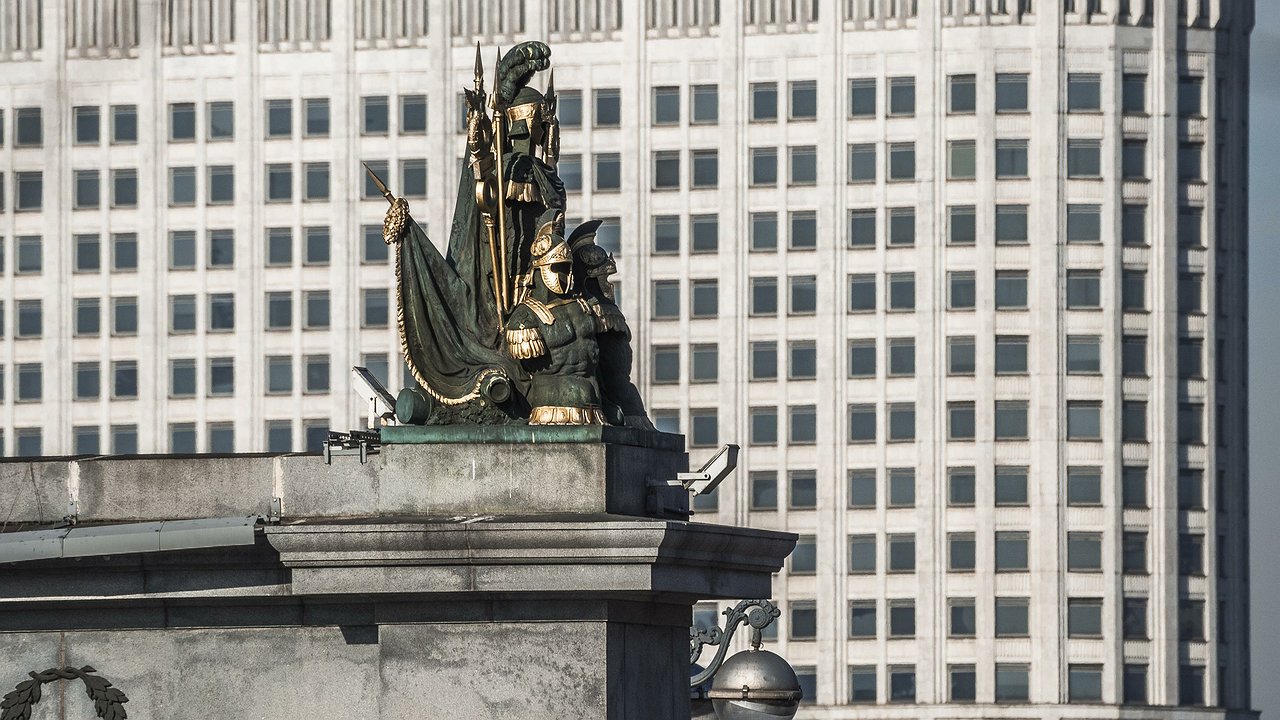On Monday, the commander of the Sudanese army, Abdelfat al-Burhan, ordered disbandment of the Paramilitary Rapid Support Force (RSF) and its classification as a “rebel group” in the clashes that erupted on Saturday, which have resulted in the deaths of about a hundred civilians to date, not counting casualties among the combatants.
“As a result of the SLO mutiny, the President of the Sovereign Transitional Council and the Commander-in-Chief of the Armed Forces decided to dissolve the SLO and declare them a rebel group against the state, therefore, appropriate measures will be taken against them,” the Sudanese Foreign Ministry said.
As such, he denounced the RSF launch on Saturday. attacks on military positions in the capital, Khartoum and other cities in the country, including the Al-Burhan residence, shortly before a scheduled meeting between the head of the army and SRB leader Mohamed Hamdan Dagalo, nicknamed “Hemedti”, to relieve tensions, according to Sudan’s state news agency SUNA.

Photo: Reuters
In this sense, he pointed out that this was a demonstration of “bad faith” on the part of the SLO, and emphasized that the army “responded in accordance with its national responsibility to achieve security and stability in the country. “The armed forces were able to crush the rebels, inflicting heavy losses in men and equipment, forcing a large number of them to surrender or flee the battlefield,” he said.
“It must be taken into account that all national, regional and international mediations that tried to convince the SRB command to integrate them into the Armed Forces failed due to the intransigence of their leaders,” he said, while stating that The army adopted a “combat strategy aimed at minimizing civilian casualties.”
These measures will take some time to cease control of RSF balances on government facilities that they controlled,” the Sudanese Foreign Ministry specified and indicated that “the competent authorities have taken all necessary measures to protect the headquarters and employees of diplomatic missions accredited in Khartoum.”

Photo: Reuters
Finally, he said he “appreciates” the efforts of the international community. “help calm the situation in the country”although he assured that “this is an internal matter that must be left in the hands of the Sudanese so that they reach the necessary agreement, away from international interference.”
Sudanese army spokesman Nabil Abdullah also confirmed that the military regained control of the Sudanese broadcast building, which thus resumes its work, which was suspended around 12:00 (local time) on Sunday. The RSF was later assured that they were in control of the facilities.
For its part, the RSF asked the military “not to respond to the orders of the Al-Burhan group”, which they accused of acting in favor of people who “strive to restore the old regime” of former President Omar Hassan al-Bashir, overthrown in a coup d’état in April 2019

Photo: Reuters
They also stated through their Twitter account that they are “fully committed” to ensure the safety of “all prisoners” which are in their possession. “They will receive good treatment, and all the necessary medical care will be provided to the victims,” they said.
“We appreciate the positions of national forces, political parties and organizations, as well as representatives of civil society, who have raised the voice of truth against injustice and tyranny. We ask them keep working to deal with the actions of the conspiratorswhich represent a leap into the dark,” they argued.
A few hours earlier, Hemedti had announced “intervention” international community against the “crimes” of Sudanese army chief Abdelfata al-Burhan, whom he described as a “radical Islamist” responsible for a “violent campaign” against “innocents”.

Photo: Reuters
In a similar vein, he defended that the RSF was “fighting radical Islamists who want to keep Sudan isolated and in the dark, away from democracy.” “We will continue to pursue Al Burhan to bring him to justice.” said Hemedti, who has so far been an ally of the army commander, while arguing that the RSF is “fighting for the people of Sudan to guarantee the democratic progress that the people have been craving.”
Sudan’s main civil organizations and political parties over the weekend unanimously demanded not only a cessation of hostilities, but an end to “militarization”, which dominated the “public space” of the country for decades, and in particular since the overthrow of dictator Omar Hassan al-Bashir four years ago following a revolution in which civilians played a major role.
Prior to the outbreak of hostilities, the African country was ruled by a junta led by the commander-in-chief of the army, whose “number two” was the SRB commander. Differences between them regarding paramilitary integration into a future unified army—an agreement prior to the formation of a new civilian-led unity government—eventually culminated in this conflict.

















